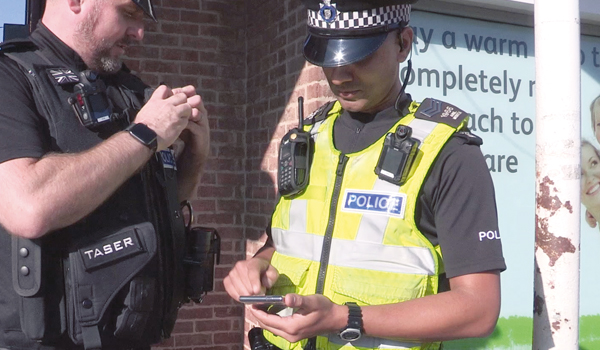Mobile app to tackle online grooming
Anew mobile phone application has been developed that can identify adults posing as children. The software, called ChildDefence, enables children to scan webchat on their mobile to check the age of people they are messaging potentially protecting them from being groomed by adults posing as children online.

A new mobile phone application has been developed that can identify adults posing as children. The software, called ChildDefence, enables children to scan webchat on their mobile to check the age of people they are messaging potentially protecting them from being groomed by adults posing as children online.
Researchers at Isis Forensics, a Lancaster University spin-out company based in InfoLab21, have been developing the tool in consultation with children and parents in the North West.
Work on the mobile phone software originated as part of project Isis, co-funded by the Northwest Regional Development Agency. This project aims to develop an ethics-centred monitoring framework and tools for supporting law enforcement agencies in policing social networks for the purpose of online child protection.
Researchers at the university say online social networks pose two significant risks in terms of child exploitation: child sex offenders predating on children in chat rooms; and distributing and sharing child abuse media through online file sharing.
Experts at Lancaster, Swansea and Middlesex universities teamed up with specialist UK law enforcement agencies to develop project Isis to help address these risks by harnessing developments in technology and to ensure that such developments maintain ethical practices.
Eventually, researchers believe the software could be used not only to identify adults posing as children but also to pick up on the stylistic footprints of child sex offenders and trail them as they move around the Internet.
Once fully developed, these techniques could be automated, potentially freeing-up police time and adding to the expertise already deployed within investigations which identify and locate child sex offenders.
Recent years have seen a major social networking boom on the Internet and children are increasingly accessing these networks using mobile devices, such as mobile phones and iPads.
However, the researchers say that while these developments offer huge opportunities to young people, they also pose risks. Predators on the Internet can abuse social networks, assuming different identities to target vulnerable children and groom them for abuse both online and in the real world.
The software uses the latest advances in language analysis technology to identify language quirks peculiar to different age groups. It can also link in with websites such as Facebook and Twitter, allowing children to scan chat text from their site. It enables children to build up profiles of individuals who they are chatting to online.
Previously, such analysis would have to be done on powerful servers but because the software has been specifically designed to work on mobile phones, young people and their parents can scan text themselves. This means that personal data does not have to be sent to a third party server for analysis.
Initial evaluation found that the software used on ChildDefence was at least as good at determining if an adult is masquerading as a child as the orginal server-based alternatives.
James Walkerdine of Isis Forensics said: Our research shows that children find it very difficult to spot adults posing as children on social networks. This software improves childrens chances of working out that something isnt right. Using state-of-the-art language analysis software it gives children a powerful tool which can help them work out who they are really talking to online.



